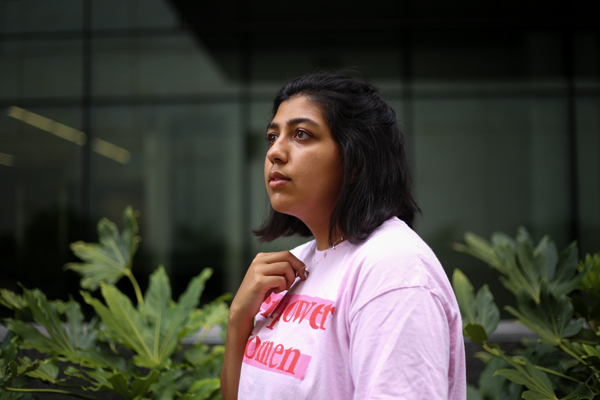The UT Senate of College Councils has introduced a diversity coordinator position to their board.
After conducting a demographic survey at the end of the previous academic year, UT Senate leadership recognized a lack of diversity in their members’ majors, hometowns, high schools, race, gender and interests. The diversity coordinator will address this underrepresentation by ensuring the UT Senate serves as many students as possible.
Veda Yagnik, who will serve as UT Senate’s first diversity coordinator, said she wants the senate to reflect the University’s diverse population.
“I want to make sure people from nontraditional backgrounds are being heard,” said Yagnik, a Plan II and business sophomore. “They deserve to have their needs addressed in whatever capacity. We have so many tools and resources that never get used. We want to bring in more voices.”
Approximately 60% of UT Senate members participated in the demographic survey, and their responses showed overrepresentation of liberal arts majors, Asian and Caucasian students and students from the suburbs of Texas, Yagnik said. These proportions did not reflect the student population, according to two reports from the Office of Institutional Reporting, Research and Information Systems.
“We’re passionate about this issue,” said Katie Lee, UT Senate vice president. “We’re rebranding it so there’s collaboration between the UT community outside of Senate … and all of the college councils.”
Yagnik said the college councils, which are legislative bodies based in every college, have previously all had diversity-related positions. She said the people who hold these positions will act as examples for her.
“I want to talk to each of them and see what their role is in their council,” Yagnik said. “It’s how I can help them grow, how I can make research available for them. It’s me learning from them, taking their advice and applying it to a bigger scale.”
Yagnik said she hopes to create an informal UT Senate committee where members concerned with issues pertaining to diversity can meet weekly.
“First, I want to see what people see as the biggest problems,” Yagnik said. “Then, I want to open up that dialogue about the people in Senate, and I hope we’ll do some policy work with it.”
Yagnik said she knows people may dislike the idea of a diversity coordinator, but she believes they misunderstand its purpose.
“Diversity just means listening and talking to people who aren’t the same as you,” Yagnik said. “That’s in any capacity. It’s race and ethnicity, yes, but it’s also gender, socio-economic background, family, the type of lifestyle you live — every single factor that makes you, you, because no two people have the same experiences.”
Hussain Alkhafaji, UT Senate policy director, said recruiting a more diverse council will help Senate take care of all student needs.
“If we’re getting so many people from the same place and the same backgrounds, we don’t know how to help anyone else,” said Alkhafaji, a public health and journalism junior. “We’re trying to create a level of accountability, and that’s the intended purpose of the diversity coordinator. We can’t improve upon issues if we’re not aware of them.”





















